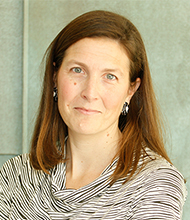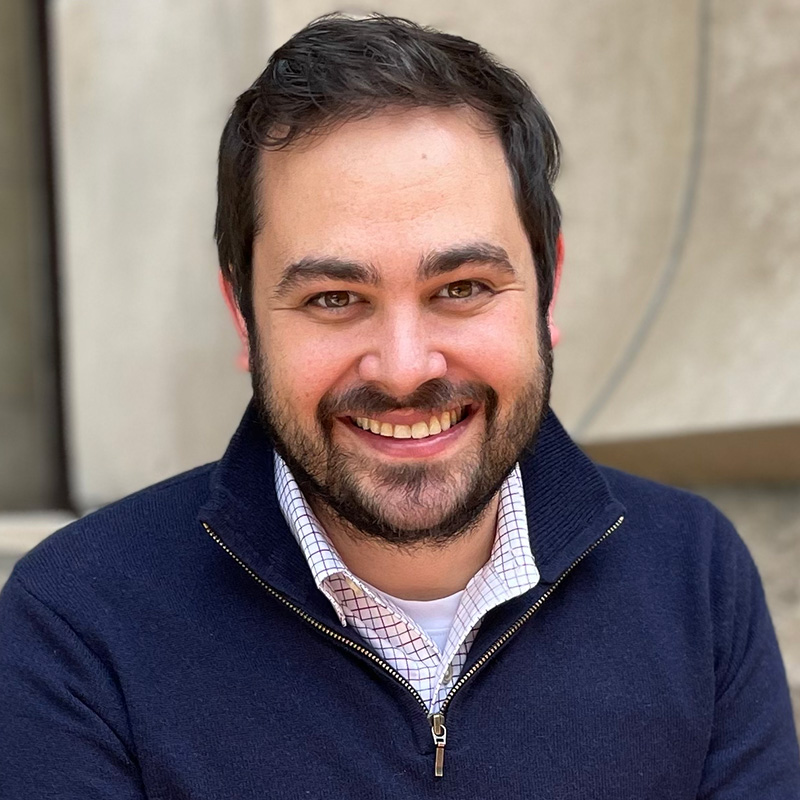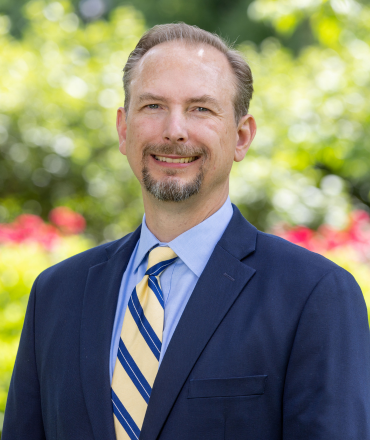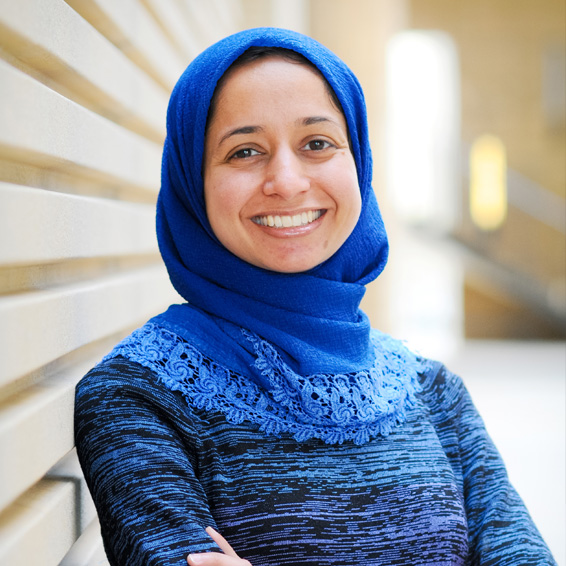Date: Tuesday, November 28th from 11:00 – 2:00 pm EST
Discussion Description:
The AALS Section on National Security Law is focused on providing initiatives aimed at broadening the reach of the Section to welcome new members, particularly members from groups and perspectives that have been historically underrepresented or outright excluded from the field of national security law. We are excited to announce a program related to this initiative, a workshop on teaching national security law.
The field of national security law is one that lacks a classic black letter law doctrinal structure. It is a field that is currently experiencing tectonic shifts in coverage and substance in the post-War on Terror era. It also, at times, has been a field and discipline that has been under-inclusive, if not alienating, to diverse groups of students, teachers, and scholars. In light of these considerations, legal educators (both experienced and new teachers) might be significantly challenged when called to prepare a course or seminar on national security law or a related topic. This workshop is designed to unpack these challenges and to equip legal educators with the pedagogical tools, analytical frameworks, and skills to effectively navigate and explore these important topics with their students.
Schedule__________________________________________________________________________________________________________________________
11:00 – 11:45 a.m. ET
Session I: Deciding What to Cover (and Omit) in a National Security Law Course
The first panel will consider questions of coverage (making difficult choices as to what’s in and what’s out), offer guidance on selecting course materials that reflect a variety of voices and perspectives, discuss how to identify learning objectives for national security law or related courses, and explore different approaches to teaching this varied and dynamic subject matter.
Professor Jeffrey Kahn, Professor Emily Berman, Professor Shirin Sinnar
View the Race, Identity, and National Security Syllabus
View the National Security Law Syllabus
BREAK
12:00 – 12:45 p.m. ET
Session II: Creating Engaged Classrooms Environments and Effective Assessments
The second panel will discuss how to create inclusive learning spaces and how to handle challenging classroom dynamics, while considering ways to frame discussions about difficult topics and ways to engage disparate perspectives in an effective exchange. In addition, panelists will discuss how to design and use assessments (both traditional and innovative) that reflect the objective of an engaged classroom and that support the course’s learning objectives.
Professor Asaf Lubin, Professor Amy Gaudion
View the Intelligence and International Law Syllabus
BREAK
1:00 – 1:45 p.m. ET
Session III: Bringing the Practice of National Security Law into the Classroom
The third session will consider how to bridge the path from classroom to practice, including guidance on experiential learning activities (from small scale in-class exercises to multi-day simulations) and connecting students with alumni and practitioners in the field. In addition, it will explore the need for interdisciplinary connections and cross-disciplinary exchange.
Professor Dakota Rudesill
View the Syllabus for National Security Law and Process
View the Simulation Overview
View the Simulation Schedule
View the Floor Plan
1:45 – 2:00 p.m. ET
Building a Teaching Community
This final short session will gather ideas about how we support one another through both formal and informal mentoring networks, and also gather feedback on topics and ideas to be covered in future teaching workshops.
Speakers__________________________________________________________________________________________________________________________
 Emily Berman, Professor of Law & Royce R. Till Professorship, University of Houston Law Center
Emily Berman, Professor of Law & Royce R. Till Professorship, University of Houston Law CenterEmily Berman’s scholarship examines the unique separation-of-powers challenges that arise in the constitutional, statutory, and regulatory regimes governing national-security policy. She focuses in particular on ways to impose traditional conceptions of government oversight—such as checks and balances and democratic accountability—on law enforcement and intelligence operations, where such oversight is frequently absent. Prior to joining the University of Houston Law Center faculty in the fall of 2014, she taught for two years as a visiting assistant professor at Brooklyn Law School. She previously was a Furman Fellow and Brennan Center Fellow at New York University School of Law and held positions as counsel and Katz Fellow at the Brennan Center, where she developed policy recommendations, drafted reports, and engaged in advocacy regarding U.S. national security policy and its impact on civil liberties. After graduating from law school, Berman clerked for the Hon. John M. Walker, Jr. of the Second Circuit Court of Appeals. Berman’s work has been published in top journals, such as the Minnesota Law Review, the Fordham Law Review, the Indiana Law Journal, and the New York University Law Review; her opinion pieces have appeared in Just Security, The Atlantic Online, the National Law Journal, Legal Times Online, and CNN.com, among others. Berman teaches National Security Law, Foreign Affairs Law, and Constitutional Law.
 Amy Gaudion, Associate Professor of Law, Penn State Dickinson Law
Amy Gaudion, Associate Professor of Law, Penn State Dickinson LawAmy C. Gaudion is an associate professor of law and the founder of Dickinson Law’s annual cyberspace simulation with the U.S. Army War College. Her scholarship sits at the intersection of constitutional law, national security and homeland security law, and civil-military relations. Professor Gaudion’s current projects explore flaws in the structural provisions of the U.S. Constitution relating to the exercise of national security powers and propose alternatives to the conventional checking and oversight mechanisms. Another thread of her scholarship focuses on the homeland security threats posed by low civic education and civic engagement levels and considers the role to be played by law schools and legal educators in countering such threats through the development of educational partnerships and curricular innovations. Professor Gaudion’s recent publications include The Homeland Security Legal Architecture Before 9/11, in Foundations of Homeland Security and Emergency Management: Law and Policy (Martin J. Alperen ed., 3d ed. forthcoming 2023) (Wiley), Exploring Race and Racism in the Law School Curriculum: An Administrator’s View on Adopting an Antiracist Curriculum, 23 Rutgers Race & the Law Review 131 (2022), and Answering the Cyber Oversight Call, 54 Loyola University Chicago Law Journal 139 (2022)
Professor Gaudion teaches courses in the areas of national security law, cyberspace law and policy, legal analysis and writing, and legislation and statutory interpretation. She is the faculty advisor for the law school’s Military Law Caucus and National Security Law Association as well as for its certificate programs in Government Affairs/National Security Law and Cyber, Privacy and Data Security. She served as the law school’s associate dean for academic affairs from 2017-2023. Prior to joining Dickinson Law, she clerked in the U.S. District Court for the Eastern District of Pennsylvania, and worked as an associate at Hanley Aronchick Segal & Pudlin. She earned a J.D. from the Villanova University School of Law, receiving summa cum laude and Order of the Coif honors, and a B.A. from the University of Virginia, graduating with distinction.
 Jeffrey Kahn, University Distinguished Professor, Altshuler Distinguished Teaching Professor, and Professor of Law, SMU Dedman School of Law
Jeffrey Kahn, University Distinguished Professor, Altshuler Distinguished Teaching Professor, and Professor of Law, SMU Dedman School of LawJeffrey Kahn is University Distinguished Professor, Altshuler Distinguished Teaching Professor, Professor of Law, and Robert G. Storey Distinguished Faculty Fellow at SMU Dedman School of Law. He was a resident in Norway during the 2017-2018 academic year as a Fulbright Research Scholar at the PluriCourts Centre in the Faculty of Law at the University of Oslo. He joined SMU in Fall 2006 and teaches and writes on American constitutional law, administrative law, Russian law, human rights, and counterterrorism. In 2007-2008, he received the Maguire Teaching Fellow Award from the Cary M. Maguire Center for Ethics and Public Responsibility at SMU for his seminar, “Perspectives on Counterterrorism.” In 2008-2009, he was named a Colin Powell Fellow of the John Goodwin Tower Center for Political Studies. In 2010, he received SMU’s Outstanding Faculty Award, a university-wide award given each year to a junior, tenure-track faculty member for excellence in teaching, curricular development, and scholarship. In 2011, the year he was tenured and promoted to associate professor, he received the Law School’s Excellence in Teaching Award. He was promoted to full professor in 2014. He won the teaching award again in 2017 and 2021.
He is the author of MRS. SHIPLEY’S GHOST: THE RIGHT TO TRAVEL AND TERRORIST WATCHLISTS (University of Michigan Press, 2013, paperback edition 2014), and co-author of the casebook NATIONAL SECURITY LAW AND THE CONSTITUTION (Aspen, 2021), now on its second edition. Among other publications, his articles have appeared in the UCLA Law Review, Michigan Law Review, Virginia Journal of International Law, and the peer-reviewed Journal of National Security Law and Policy. His blog posts have been featured on Lawfare, Just Security, and Concurring Opinions.
His work on Russian law has been noted by name by the editors of the New York Times and published in various law reviews as well as the peer-reviewed journals Post-Soviet Affairs and Review of Central and East European Law. His latest research has focused primarily on the influence in Russia of the European Convention on Human Rights. In 2011, Russian President Dmitrii Medvedev’s Human Rights Council asked him─the one American among six other experts from Russia, one from Germany, and one from the Netherlands─to write an expert report on the second conviction of Mikhail Khodorkovsky and Platon Lebedev. Professor Kahn described this work and its repercussions in an op-ed published in the New York Times (online) and International Herald Tribune (print).
He is a graduate of Yale College, Oxford University, and the University of Michigan Law School. His first book, based on that dissertation, was published by Oxford University Press while he was a law student. During law school, he also served as a lecturer on European human rights law at summer training programs in Moscow for Russian lawyers sponsored by the Council of Europe. After law school, he was a law clerk to the Honorable Thomas P. Griesa of the United States District Court for the Southern District of New York. He served as a trial attorney in the Civil Division, United States Department of Justice, from October 2003 until April 2006.
At SMU he was a founding member of the Advisory Board for the SMU Embrey Human Rights Education Program. SMU is the first university in the South, and only the fifth in the country, to offer an academic major in human rights. During the fall 2013 semester, he was an O’Brien Research Fellow in Residence in the Faculty of Law at McGill University. During the spring 2014 semester, he was a visiting professor teaching constitutional law in the School of Law at Washington & Lee University.
 Asaf Lubin, Associate Professor of Law, Indiana University Bloomington Maurer School of Law
Asaf Lubin, Associate Professor of Law, Indiana University Bloomington Maurer School of LawDr. Asaf Lubin is an Associate Professor of Law at Indiana University Maurer School of Law and a Visiting Professor at Columbia Law School (Fall, 2023). He is additionally, a Faculty Associate at the Berkman Klein Center for Internet and Society at Harvard University, an Affiliated Fellow at Yale Law School’s Information Society Project, and a Visiting Scholar at the Hebrew University of Jerusalem Federmann Cyber Security Research Center.
Dr. Lubin’s research centers around the intersection of law, technology, and international security. His scholarship explores the complex legal challenges and intricate dynamics produced by technological advancements in the areas of national security and international law. In his analysis, he has examined the regulation of cybersecurity harms, liabilities, and insurance, as well as policy and institutional design around espionage and intelligence collection, artificial intelligence, privacy and data protection, and internet governance. His work draws on his experiences as a former intelligence analyst, Sergeant Major (Res.), with the Israeli Defense Forces Intelligence Branch as well as his practical training and expertise in national security law and foreign policy. Dr. Lubin’s work additionally reflects his time spent serving as a Robert L. Bernstein International Human Rights Fellow with Privacy International, a London-based nonprofit organization devoted to advancing the right to privacy in the digital age and curtailing unfettered forms of governmental and corporate surveillance.
Prior to joining the Maurer School of Law in 2020, Dr. Lubin held numerous academic and governmental positions including as a Cybersecurity Policy Postdoctoral Fellow at the Fletcher School of Law and Diplomacy at Tufts University, as an Expert Contributor to the United Nations Office of Drugs and Crime (UNODC) Group for the Education for Justice (E4J) Module Series on Cybercrime, as an Articled Clerk for the International Law Division of the Israeli Ministry of Foreign Affairs Office of the Legal Advisor, and as a Research Assistant to the Turkel Public Commission of Inquiry into the Maritime Incident of May 31st 2010 established under the Israeli Prime Minister’s Office.
Dr. Lubin is the author of two forthcoming books: “The International Law of Intelligence: The World of Spycraft and the Law of Nations” (Oxford University Press, 2024) and “Teaching Cybersecurity Law and Policy” (Edward Elgar, 2024). Dr. Lubin has additionally co-edited the book-length anthology “Rights to Privacy and Data Protection in Armed Conflict” (NATO CCDCOE, 2022).
Dr. Lubin holds a dual degree in law and international relations (LL.B./B.A., magna cum laude, ’14) from Hebrew University of Jerusalem, and Master of Laws (LL.M. ’15) and Doctor of the Science of Law (J.S.D. ’20) degrees from Yale Law School. He additionally attended The Hague Academy of International Law and interned for the United Nations International Criminal Tribunal for the Former Yugoslavia.
Dr. Lubin has previously taught seminars in public and private international law, cybersecurity and cyber risk management, tort law, international human rights and humanitarian law, and criminal procedure and counterterrorism. He has published or has forthcoming pieces with the Georgia Law Review, the Temple Law Review, the Harvard International Law Journal, the Yale Journal of International Law, the Harvard National Security Journal, the Connecticut Insurance Law Journal, The Journal of Law and Technology at Texas, and the Chicago Journal of International Law, and has written for Just Security and Lawfare.
 Dakota Rudesill, Associate Professor of Law, Ohio State University Moritz College of Law
Dakota Rudesill, Associate Professor of Law, Ohio State University Moritz College of LawProfessor Rudesill is a scholar, practitioner, and teacher of legislation and national security law and policy. At Moritz, he teaches National Security Law & Process, Secrecy & Surveillance, Legislation and Regulation, theLegislation Clinic, and Professional Responsibility (legal ethics).
His scholarship has appeared or is forthcoming in the Georgetown Law Journal, Stanford Journal of International Law, Yale Journal of International Law, Harvard National Security Journal, Georgetown Journal of Law & Public Policy, and the Washington University Law Review, among others. Professor Rudesill is a member of the editorial board of the peer-review Journal of National Security Law and Policy. He has served as Chair of the National Security Section of the American Association of Law Schools (AALS).
Particular areas of emphasis in Professor Rudesill’s work are intelligence and secrecy (including secret law), arms control and nuclear weapons, legislation, and the experiential “learning-by-doing” training of professionals. Professor Rudesill leads a coalition pushing for a congressional clerkship program analogous to the judiciary’s law clerk program, and is the creator and director of The Ohio State National Security Simulation. This immersive annual exercise places over 130 OSU students from law, policy, intelligence, military, communications, and business management backgrounds in their respective roles as they grapple with current national security challenges and advise top practitioners in real time over two days.
Professor Rudesill has advised senior leaders in all three branches of the federal government. He served the U.S. Congress for nine years, doing national security legislative work for the Senate Budget Committee and Sen. Kent Conrad. In the Executive Branch, as a member of the Obama-Biden Presidential Transition Team, Professor Rudesill advised the President-Elect’s nominees for Director of National Intelligence and CIA Director. He served in the Office of the Director of National Intelligence (ODNI), and on the President’s Detention Policy Task Force at the U.S. Department of Justice. In the Judicial Branch, Professor Rudesill was a law clerk to James B. Loken, Chief Judge of the U.S. Court of Appeals for the Eighth Circuit.
Prior to coming to Ohio State, from 2010 to 2013, Professor Rudesill was Visiting Associate Professor at Georgetown Law Center, and directed the Federal Legislation & Administrative Clinic. Earlier in his career he was a law firm associate, a Visiting Fellow at the Center for Strategic & International Studies, and was selected for the Council on Foreign Relations International Affairs Fellowship.
Professor Rudesill received his BA from St. Olaf College and JD from Yale Law School.
 Shirin Sinnar, William W. and Gertrude H. Saunders Professor of Law
Shirin Sinnar, William W. and Gertrude H. Saunders Professor of Law